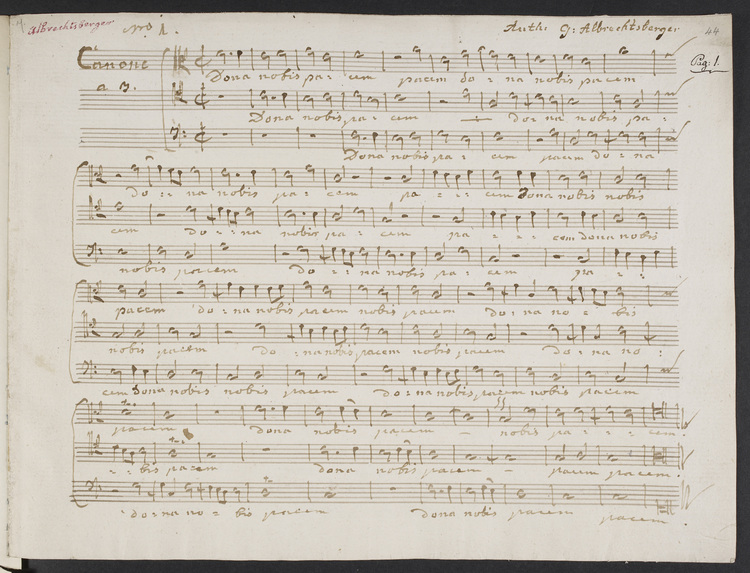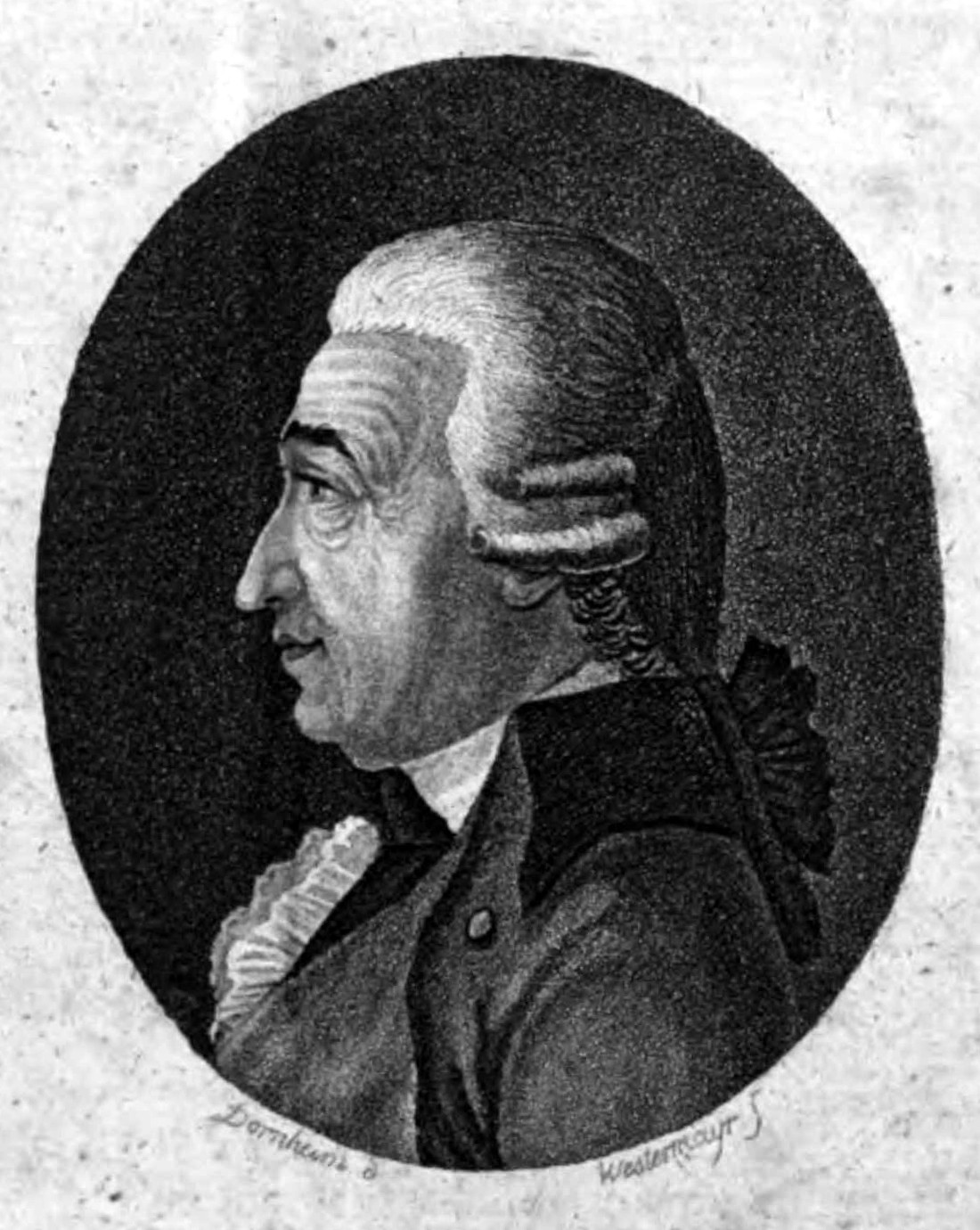|
Moritz Brosig
Moritz Brosig (15 October 1815 - 24 January 1887) was a German Wrocław Cathedral, cathedral organist and composer. He came to be seen as a leading representative of the so-called :de:Breslauer Schule, Breslau School of church musicians. Despite his Roman Catholic Church, Roman Catholic faith, he wrote more than thirty chorale preludes, working in a musical genre more traditionally associated with Lutheranism, Lutheran worship. Life Provenance and early years Moritz Brosig was born the youngest son of Joseph Brosig, a minor landowner at Lisie Kąty, Opole Voivodeship, Fuchswinke in the countryside on the southern edge of Lower Silesia. His mother Barbara was the daughter of the man who owned the Kreuzer printing works in the Silesian capital, Wrocław, Breslau. When Brosig was just three his father died: his mother sold the family lands and moved with her son to Breslau, which is where Moritz grew to adulthood and, indeed, where he lived for the rest of his life. He attended th ... [...More Info...] [...Related Items...] OR: [Wikipedia] [Google] [Baidu] |
Louis Spohr
Louis Spohr (, 5 April 178422 October 1859), baptized Ludewig Spohr, later often in the modern German form of the name Ludwig, was a German composer, violinist and conducting, conductor. Highly regarded during his lifetime, Spohr composed ten Symphony, symphonies, ten Opera, operas, eighteen violin concerti, four clarinet concerti, four Oratorio, oratorios, and various works for small ensemble, chamber music, and art songs.Clive Brown. "Spohr, Louis." Grove Music Online. Oxford Music Online. 18 May 2012 Spohr invented the violin chinrest and the orchestral Rehearsal letter, rehearsal mark. His output spans the Transition from Classical to Romantic music, transition between Classical period (music), Classical and Romantic music, but fell into obscurity following his death, when his music was rarely heard. The late 20th century saw a revival of interest in List of compositions by Louis Spohr, his oeuvre, especially in Europe. Life Spohr was born in Braunschweig in the duchy of Bru ... [...More Info...] [...Related Items...] OR: [Wikipedia] [Google] [Baidu] |
Adolf Friedrich Hesse
Adolf Friedrich Hesse (30 August 1809 – 5 August 1863) was a German organist and composer. Life Hesse was born and died in Breslau. He studied in his home town with the organists Friedrich Wilhelm Berner and Ernst Köhler (1799–1847). He was taught within the Bach tradition of Silesia. On his first concert tour in Germany he met the organist Christian Heinrich Rinck, with whom he returned to study for six months in 1828-1829: Rinck was a student of Johann Christian Kittel, who in turn was a student of Johann Sebastian Bach. In 1831, he became the principal organist at the Bernhardinerkirche in Breslau. Considered one of the most important organists in Germany, his virtuosic playing and agile pedalwork dazzled audiences in Paris, where he played an all-Bach programme—a novelty in France—for the inauguration of the organ at Saint-Eustache in 1844; and in London, where he played at Crystal Palace during the Great Exhibition of 1851. Back in Breslau, he conducted the symphoni ... [...More Info...] [...Related Items...] OR: [Wikipedia] [Google] [Baidu] |
Kapellmeister
(, also , ) from German ''Kapelle'' (chapel) and ''Meister'' (master)'','' literally "master of the chapel choir" designates the leader of an ensemble of musicians. Originally used to refer to somebody in charge of music in a chapel, the term has evolved considerably in its meaning and is today used for denoting the leader of a musical ensemble, often smaller ones used for TV, radio, and theatres. Historical usage In German-speaking countries during the approximate period 1500–1800, the word often designated the director of music for a monarch or nobleman. For English speakers, it is this sense of the term that is most often encountered, since it appears frequently in biographical writing about composers who worked in German-speaking countries. During that period, in Italy, the position (Italian: ''maestro di capella'') largely referred to directors of music assigned to cathedrals and sacred institutions rather than those under royal or aristocratic patronage. A Kapellmeister ... [...More Info...] [...Related Items...] OR: [Wikipedia] [Google] [Baidu] |
Oder
The Oder ( , ; Czech language, Czech, Lower Sorbian language, Lower Sorbian and ; ) is a river in Central Europe. It is Poland's second-longest river in total length and third-longest within its borders after the Vistula and Warta. The Oder rises in the Czech Republic and flows through western Poland, later forming of the border between Poland and Germany as part of the Oder–Neisse line. The river ultimately flows into the Szczecin Lagoon north of Szczecin and then into three branches (the Dziwna, Świna and Peene) that empty into the Bay of Pomerania of the Baltic Sea. Names The Oder is known by several names in different languages, but the modern ones are very similar: English and ; Czech, Polish, and , ; (); Medieval Latin: ''Od(d)era''; Renaissance Latin: ''Viadrus'' (invented in 1534). Ptolemy knew the modern Oder as the Συήβος (''Suebos''; Latin ''Suevus''), a name apparently derived from the Suebi, a Germanic people. While he also refers to an outlet in th ... [...More Info...] [...Related Items...] OR: [Wikipedia] [Google] [Baidu] |
Johann Sebastian Bach
Johann Sebastian Bach (28 July 1750) was a German composer and musician of the late Baroque period. He is known for his orchestral music such as the ''Brandenburg Concertos''; instrumental compositions such as the Cello Suites; keyboard works such as the '' Goldberg Variations'' and '' The Well-Tempered Clavier''; organ works such as the '' Schubler Chorales'' and the Toccata and Fugue in D minor; and vocal music such as the '' St Matthew Passion'' and the Mass in B minor. Since the 19th-century Bach revival he has been generally regarded as one of the greatest composers in the history of Western music. The Bach family already counted several composers when Johann Sebastian was born as the last child of a city musician in Eisenach. After being orphaned at the age of 10, he lived for five years with his eldest brother Johann Christoph, after which he continued his musical education in Lüneburg. From 1703 he was back in Thuringia, working as a musician for Prot ... [...More Info...] [...Related Items...] OR: [Wikipedia] [Google] [Baidu] |
Johann Georg Albrechtsberger
Johann Georg Albrechtsberger (3 February 1736 – 7 March 1809) was an Austrian composer, organist, and music theorist, and one of the teachers of Ludwig van Beethoven. He was a friend of Haydn and Mozart. Biography Albrechtsberger was born at Klosterneuburg, near Vienna. He originally studied music at Melk Abbey and philosophy at a Benedictine seminary in Vienna, and became one of the most learned and skilful contrapuntists of his age. Albrechtsberger's earliest classmates included Michael Haydn and Franz Joseph Aumann. After being employed as organist at Raab in 1755 and Maria Taferl in 1757, he was appointed Thurnermeister back at Melk Abbey. In 1772 he was appointed organist to the court of Vienna, and in 1792 Kapellmeister of St. Stephen's Cathedral. His fame as a theorist attracted to him in the Austrian capital a large number of pupils, some of whom afterwards became eminent musicians. Among these were Johann Nepomuk Hummel, Ignaz Moscheles, Josef Weigl, Ludwig-W ... [...More Info...] [...Related Items...] OR: [Wikipedia] [Google] [Baidu] |
Johann Christian Kittel
Johann Christian Kittel (18 February 1732 – 17 April 1809) was a German organist, composer, and teacher. He was one of the last students of Johann Sebastian Bach. His students included Michael Gotthard Fischer, Karl Gottlieb Umbreit, Johann Wilhelm Hässler and Christian Heinrich Rinck. Biography Kittel was born and died in Erfurt. He first studied with Jakob Adlung. He moved to Leipzig in 1748 and was a favourite - and last - pupil of Johann Sebastian Bach until his death two years later. He was appointed organist and teacher in Langensalza in 1751, following which he returned to Erfurt as organist of the Barfüßerkirche, in 1756, moving to the Predigerkirche in 1762. He refused many generous and more munificent offers, including one in 1790 from Duchess Anna Amalia of Saxe-Weimar to travel to Italy, remaining in Erfurt for the rest of his life. He played many evening recitals there and was famous as a virtuoso organist; Goethe, Herder, and Wieland all went to hea ... [...More Info...] [...Related Items...] OR: [Wikipedia] [Google] [Baidu] |
Johann Caspar Ferdinand Fischer
Johann Caspar Ferdinand Fischer (some authorities use the spelling Johann Kaspar Ferdinand Fischer) (1656 August 27, 1746) was a German Baroque composer. Johann Nikolaus Forkel ranked Fischer as one of the best composers for keyboard of his day; however, partly due to the rarity of surviving copies of his music, his music is rarely heard today. Life Fischer seems to have been of Bohemian origin, possibly born at Schönfeld, but details about his life are sketchy. Fischer was baptized and spent his youth in Schlackenwerth, north-west Bohemia. The first record of his existence is found in the mid-1690s: by 1695 he was Kapellmeister to Ludwig Wilhelm of Baden, and he may have remained with the court until his death in Rastatt. Works Much of Fischer's music shows the influence of the French Baroque style, exemplified by Jean Baptiste Lully, and he was responsible for bringing the French influence to German music. Fischer's harpsichord suites updated the standard Froberg ... [...More Info...] [...Related Items...] OR: [Wikipedia] [Google] [Baidu] |
Christian Heinrich Rinck
Johann Christian Heinrich Rinck (18 February 1770 – 23 July 1846) was a German composer and organist of the late classical and early romantic eras. Life and career Rinck was born in Elgersburg (in present-day Thuringia), and died in Darmstadt, aged 76. He studied with Johann Christian Kittel (1732–1809), (a pupil of Johann Sebastian Bach), and eventually became Kantor at the music school in Darmstadt, where he was also a court organist from 1813. He composed prolifically, and an organ primer of his enjoyed wide popularity. Among his works is a set of Variations on ‘Ah! vous dirai-je, Maman’, Opus 90, published by Simrock in 1828. It is based on a tune made familiar by Mozart (K. 265) (and generally associated with the words ''Twinkle Twinkle Little Star "Twinkle, Twinkle, Little Star" is a popular English lullaby. The lyrics are from an early-19th-century English poem written by Jane Taylor, "The Star". The poem, which is in couplet form, was first published ... [...More Info...] [...Related Items...] OR: [Wikipedia] [Google] [Baidu] |






